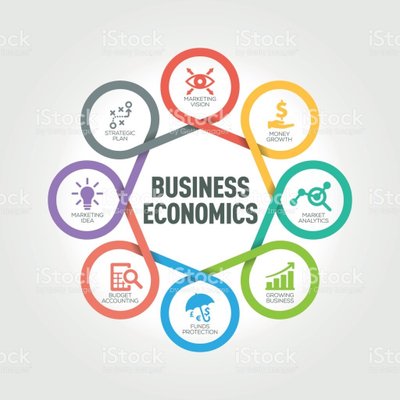A Thorough Analysis into the Global Impact of Business and Economics Regulations
A Thorough Analysis into the Global Impact of Business and Economics Regulations
Blog Article
Organization and Economics 101: Crucial Knowledge for Aspiring Leaders
In today's swiftly advancing company landscape, aspiring leaders must grow a detailed understanding of basic economic concepts and tactical frameworks. Grasping principles such as supply and need, market structures, and competition is not merely scholastic; these components are critical in shaping reliable decision-making and promoting advancement.
Comprehending Supply and Demand
Supply and demand are basic concepts that continually underpin the mechanics of any market economic situation. The connection between these 2 pressures determines the price of services and products in addition to their schedule on the market. Supply describes the amount of an item that manufacturers are able and prepared to offer at various price degrees, while demand reflects the amount that consumers agree and able to purchase.
When need enhances without an equivalent increase in supply, costs often tend to climb, signifying manufacturers to increase output. On the other hand, if supply outstrips demand, prices might fall, motivating producers to lower result. This vibrant interaction assists to achieve market stability, where the amount provided matches the quantity required at a details price point.

Exploring Market Frameworks
Market structures define the affordable atmosphere in which services operate, considerably influencing their prices strategies, output levels, and overall profitability. Understanding these structures is vital for aiming leaders, as they form service choices and market dynamics.
There are 4 primary kinds of market frameworks: excellent competition, monopolistic competitors, oligopoly, and monopoly. Monopolies exist when a single company regulates the market, resulting in the highest level of pricing power and prospective market inefficiencies.
Each market framework offers distinct difficulties and chances for organizations. Leaders should comprehend these subtleties to successfully position their companies, develop affordable methods, and react to market changes. By comprehending the effects of numerous market structures, aiming leaders can make informed choices that drive their organizations toward lasting success and growth in an ever-evolving financial landscape.
Financial Principles for Leaders
Reliable management in company demands a strong understanding of financial concepts, as they underpin calculated decision-making and source allotment. Leaders have to realize crucial ideas such as cash flow administration, earnings analysis, and financial forecasting. These components are crucial in examining a company's financial health and wellness and leading its future direction.
Capital administration is especially essential; it makes certain that the organization keeps adequate liquidity to fulfill its responsibilities while seeking development possibilities. Evaluating productivity enables leaders to recognize which solutions or products generate the highest returns, allowing enlightened financial investment choices. Additionally, economic forecasting helps prepare for future revenues and costs, facilitating even more accurate budgeting and resource allotment.
Additionally, understanding financial statements-- such as balance sheets, revenue statements, and cash money circulation statements-- equips leaders with the insights essential to make educated options. This knowledge promotes responsibility and openness, enhancing stakeholder count on.
In today's vibrant organization environment, leaders should be skilled at interpreting monetary data to respond promptly to market adjustments. Inevitably, a solid grasp of economic concepts empowers leaders to drive their organizations toward sustainable success while efficiently taking care of sources and risks.
The Duty of Competition
Recognizing the role of competition is necessary for any kind of service aiming to flourish in a saturated market. Competitors drives innovation and effectiveness, compelling organizations to enhance their solutions and items consistently. In an affordable landscape, companies must separate themselves to bring in and maintain customers. This differentiation can show up through exceptional quality, distinct functions, or outstanding customer support.
Furthermore, competition can result in much better prices strategies. As firms try market share, they are incentivized to use competitive rates, profiting customers while difficult businesses to take care of expenses efficiently. This vibrant fosters a society of continuous improvement, pressing organizations to enhance operations and improve worth recommendations.
Additionally, competition can boost market development by encouraging new participants. New businesses usually introduce fresh concepts and techniques, further improving the total market landscape. However, business must also be vigilant; excessive competition can bring about market saturation, decreasing productivity for all players involved.
Eventually, understanding and browsing competitors is essential for leaders. By recognizing its diverse role, striving leaders can make informed decisions that place their companies for long-lasting success in an ever-evolving marketplace.
Strategic Decision-Making
In the realm of organization, calculated decision-making is basic to adapting and achieving lasting goals to transforming scenarios. This procedure includes reviewing various options and selecting the most efficient strategy that aligns with the organization's vision and objectives. Reliable calculated decision-making requires an extensive understanding of both exterior and interior environments, including market patterns, affordable dynamics, and business capacities.
Key elements of strategic decision-making consist of data evaluation, stakeholder engagement, and danger evaluation. Leaders have to collect pertinent details, analyze it seriously, and forecast potential end results. Engaging stakeholders promotes cooperation and ensures that varied viewpoints are taken into consideration, enhancing the high quality of choices made - Business and Economics. Additionally, analyzing dangers related to each alternative makes it possible for leaders to anticipate obstacles and create backup Bonuses plans.
Inevitably, successful calculated decision-making encourages organizations to browse complexities, leverage opportunities, and respond proactively to risks. By cultivating a society that values informed decision-making, companies place themselves to innovate and keep an one-upmanship in an ever-evolving business landscape. Hopeful leaders need to hone these skills, as their capacity to make audio calculated decisions will significantly influence their companies' success and sustainability.

Verdict
Recognizing the role of competitors additional boosts tactical reasoning, allowing leaders to navigate intricate market dynamics. Ultimately, Clicking Here this fundamental understanding equips future leaders to innovate and align organizational approaches with developing market problems, leading the method for continual success and productivity.
Understanding these ideas is crucial for striving company leaders, as they form the structure for reliable decision-making in prices, resource visit this web-site allocation, and market method. Understanding supply and demand gears up leaders to browse the intricacies of market fluctuations and customer behavior.
Monopolies exist when a single company regulates the market, resulting in the highest possible degree of pricing power and potential market inefficiencies.
By understanding the effects of numerous market frameworks, aspiring leaders can make educated decisions that drive their services towards lasting success and development in an ever-evolving economic landscape.
Understanding the function of competitors additional boosts tactical reasoning, making it possible for leaders to navigate intricate market characteristics.
Report this page